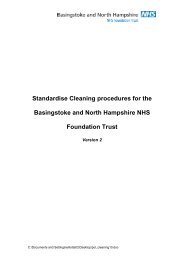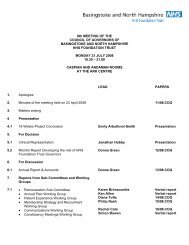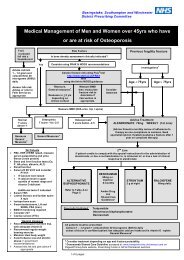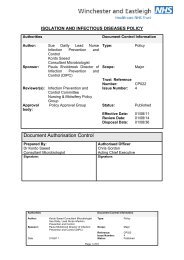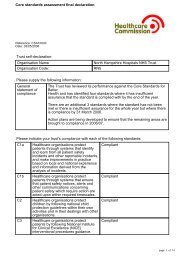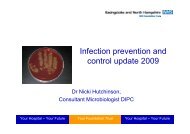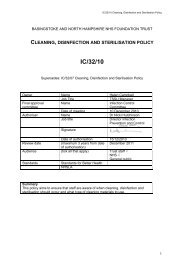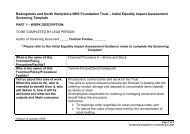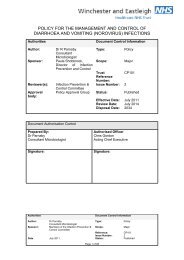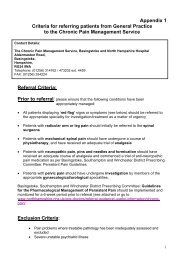Protocol for infection surveillance - Hampshire Hospitals NHS ...
Protocol for infection surveillance - Hampshire Hospitals NHS ...
Protocol for infection surveillance - Hampshire Hospitals NHS ...
You also want an ePaper? Increase the reach of your titles
YUMPU automatically turns print PDFs into web optimized ePapers that Google loves.
Surveillance of Infection <strong>Protocol</strong><br />
Note:<br />
• Positive blood cultures from the same patient within 14 days of the initial<br />
culture are considered to be part of the original episode and should not be<br />
reported<br />
• Positive blood cultures more than 14 days apart should be reported as these<br />
are considered to be a new episode.<br />
4.4 Submission of data<br />
Data is entered via a password protected web link to the HPA which includes:<br />
• Core Dataset<br />
• Risk Factor page (this is <strong>for</strong> Trust in<strong>for</strong>mation only, to help with root cause<br />
analysis (RCA). It is not in<strong>for</strong>mation <strong>for</strong> publication by the HPA or Department<br />
of Health.<br />
4.5 Reconciliation of submitted data<br />
• Trusts using the website have access to all the data they have entered.<br />
• This can be compared to a regional and national aggregate also available to<br />
Trusts from the website<br />
4.6 Recording data locally<br />
A database has been developed to record in<strong>for</strong>mation regarding MRSA and MSSA<br />
bacteraemia. This database is used to create in<strong>for</strong>mation in spreadsheet <strong>for</strong>mat <strong>for</strong><br />
display on the Trust Reporting Warehouse computer drive. The database is also<br />
used to record results of RCA and as a learning resource.<br />
5.0 Clostridium difficile reporting<br />
Clostridium difficile has been included in the MESS reporting scheme by the HPA<br />
in April 2007. Coordinator enters cases via the website on a daily or weekly basis.<br />
5.1 Coordinator responsibilities include<br />
5.2 Data collection<br />
Note:<br />
• Liaises daily with the Consultant Microbiologist and the ICNet system, to<br />
identify all C.difficile toxin positive episodes (and their source) detected in<br />
BNHFT laboratory, whether clinically significant or not, whether treated or not,<br />
whether acquired in the Trust or elsewhere.<br />
• Positive C.difficile toxin assays from the same patient within 28 days of the<br />
initial positive assay are considered to be part of the original episode and<br />
should not be reported.<br />
• Positive C.difficile toxin assays more than 28 days apart should be reported<br />
as these are considered to be a new episode or recurrence or relapse.<br />
5.3 Submission of data<br />
Data is entered via a password protected web link to the HPA which includes:<br />
Page 6 of 9



